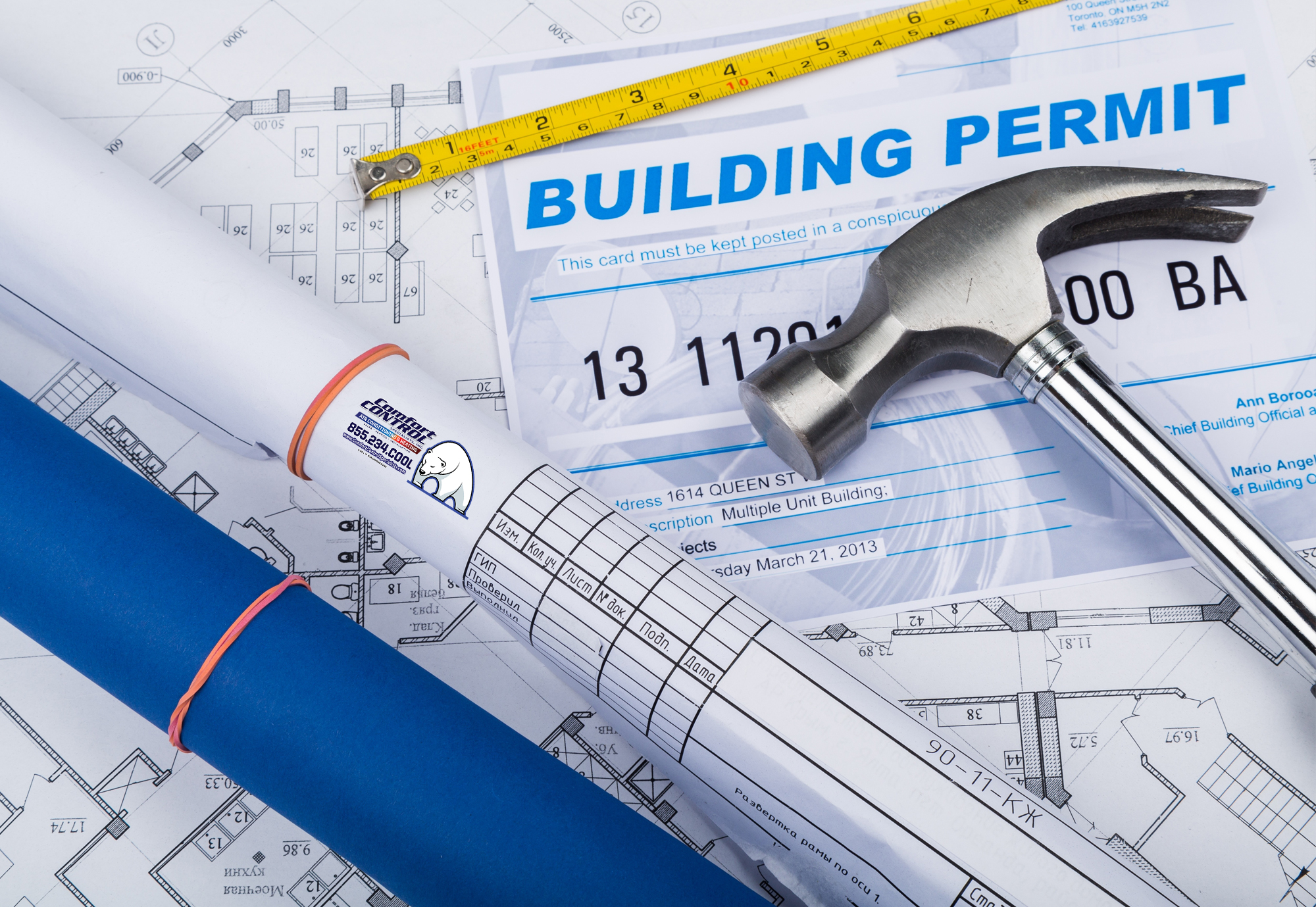[vc_row][vc_column][vc_column_text]
Building permits are necessary for completing many home projects, remodeling plans and new home construction. It’s not just a piece of paper or formality. Permits are serious legal requirements held by local governments across Pinellas, Hillsborough and Pasco counties.
What is a permit?
The Florida Statute Chapter 489 requires all licensed HVAC contractors to obtain a building permit in order to install, remove or replace any AC system, as regulated by the Florida Building Code. For example, in most cases, this permit law includes:
- Installing an AC heating or cooling system
- Installing an AC wall unit by cutting out or removing part of wall (not replacement)
- Replacing a condenser, air handler or heating elements
Why do I need a permit in Florida?
Having a building permit for any AC work in Spring Hill (and surrounding areas) done ensures your system is:
- Properly installed
- The right size for your home
- Centrally located for the ventilation
- Cooling your home efficiently
- Circulating good indoor air quality
- Providing adequate dehumidification
- Conserving energy
- Reducing your utility bill
Without a permit, you cannot guarantee that AC work is done properly to heat or cool your home, and it could end up costing you more in the long run if you choose not to comply.
Permit Compliance in Florida – What’s at Risk?
Permits are usually required to pass a home inspection, comply with your local government, and submit evidence to your homeowner’s association, landlord and sometimes property tax authorities.
Obtaining a permit is both the responsibility of the HVAC contractor and the homeowner. If you or your contractor are caught without a permit, there’s a lot at stake:
- He / she can lose their business or trade license
- Your city or local government may fine you for noncompliance
- You may be required to remove or redo any HVAC work at your own expense
You – the homeowner – are the most liable for building AC permits. If you choose to resell your home, the new homebuyer and realtor may be interested in learning if/when permits were obtained for the AC system installation or replacement. If permits were not pulled, the homebuyer may deny responsibility and you could end up redoing any HVAC work done in the first place.
You also do not want to get caught without a permit when AC system replacement falls under warranty. Most of the large HVAC equipment manufacturers – like Rheem, Carrier, Trane and Lennox – state their warranties only cover defective parts, and some warranties even include provisions that equipment must be installed by a licensed HVAC contractor. Many home warranties carry the same restrictions, often voiding coverage.
How do you apply for a permit?
Licensed HVAC contractors will usually obtain a building permit for you and include the fee in the total price of AC installation or replacement.
Florida permitting requirements vary by Pinellas, Pasco and Hillsborough counties and are managed by local governments. Click on your city link below for more information:
- Belleair Beach
- Clearwater
- Dunedin
- Largo
- Oldsmar
- Pinellas Park
- Safety Harbor
- Seminole
- St. Petersburg
- Tarpon Springs
- Holiday (*refer to Pasco County website)
- Lealman (*refer to Pinellas County website)
- Palm Harbor (*refer to Pinellas County website)
(*As an unincorporated location, county commissioners serve as your local government.)
Be sure to ask your contractor about licensing and permitting requirements before they begin work. If your AC contractor does not want to file permit, then that is a “red flag” and you should be concerned.
Why should I work with a local HVAC company that files permits?
General contractors may be licensed and familiar with Florida building codes, but may not have the experience and expertise you deserve when it comes to your heating and cooling needs.
When you work with a qualified HVAC company like The Comfort Control Specialists, our technicians will handle all of your building permits and properly install and/or replace your AC system with quality service and care.
For more information on permitting and ensuring your project is within code, Contact Us Today!
*This article is for information purposes only. Please refer to your local government administrator for current regulations in your area. You can also contact us for regulations in the areas we service.
[/vc_column_text][/vc_column][/vc_row]



